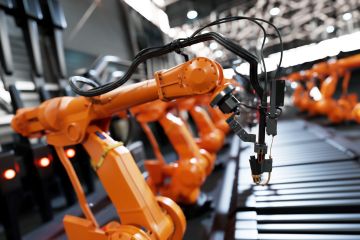
Post-processing, in the cyber-physical systems which form the basis of Industry 4.0, is an umbrella term that covers a variety of stages that 3D printed parts have to undergo before being used for the final purpose. Regardless of the Additive Manufacturing (AM) mode, post-processing focusses on removing the undesired properties that have been built-in the final product during the additive manufacturing process. Post-processing can include technologies such as Heat Treatment, UV Curing, Support Removal, Cleaning & De-powdering, Machining, Coating or Infiltration, Electrochemical & Surface Finish Processes, Inspection and Dyeing. This module aims to provide the student with key insights into post-processing, its different segments, and its importance in AM serial production.
Entry to the Certificate in Innovative Materials for Industry 4.0 programme and the associated minor awards is via direct entry with the following requirements:
Graduates with a Level 8 Honours degree engineering or science or equivalent
or
Graduates with a Level 7 Distinction award in Engineering or Science or equivalent with a minimum 2 years relevant post qualification experience.
or
EU and International graduates whose qualifications which are in line with the Bologna agreement or the international NARIC system for Level 8 comparison. International learners must have an English Language score of 6.0 ILETS or a Duolingo score of 100.
RPL (Recognition of Prior Learning)
All programmes are mapped to the SETU Carlow Recognition of Prior Learning (RPL) policy https://www.itcarlow.ie/resources/quality/quality-policies-procedures.htm and applicants who wish to apply using this route can request the specific RPL for this programme.
SETU Carlow’s RPL Policy offers clear pathways to the learner for recognition of previous learning undertaken and offer every credit to the learner in completing such learning.
The Programme Board will be responsible for the assessment of entry standards and applications as part of any RPL Process.
Smart Industry vs Smart Manufacturing
Linkage between automation and digitization, Internet of Things, industrial and manufacturing technological evolution, data/analytics, industry /manufacturing challenges, human, economic and societal evolutions, integration of information technology and operational technology (IT and OT).
Additive, Subtractive, Formative Manufacturing
A study of the differences between these different manufacturing techniques and associated post-processing technologies. In addition, the content will consider some of the main characteristics of Industry 4.0, such as vertical networking, horizontal integration, and through-engineering, and how these influence materials choices.
Traditional Post-Treatments
A study of more traditional post-treatments such as heat treatments, UV Curing, subtractive manufacturing, Inspection and Dyeing.
Novel Post-Treatments
Looking at cutting-edge, critical <automated, manual> post-additive manufacturing treatments such as Excess Material Removal, Support Removal, Machining, Surface Finish Processes (such as bead blasting), Electrochemical Additive Manufacturing and Machining.

